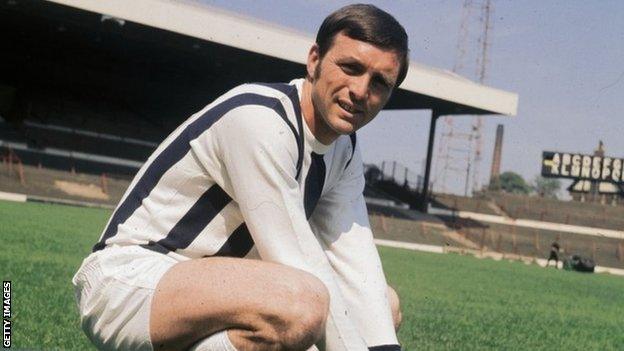Dementia in football: New study launched to investigate ways to reduce risk in ex-footballers
- Published

The inquest into the death of former West Brom striker Jeff Astle found heading heavy leather footballs repeatedly had contributed to trauma to his brain
A new dementia study has been launched to investigate ways to reduce risk of the disease in former footballers.
The study will be led by Dr Willie Stewart, whose previous research showed ex-professionals are three and a half times more likely to die of dementia than the general population.
The new four-year, £1.3m BrainHOPE study will build on that research.
It is being jointly funded by the FA and Fifa, and will recruit 120 ex-professional footballers aged 40-59.
"This is an incredibly important study, and we are grateful to the FA and Fifa for their support to allow it to proceed," said Stewart, consultant neuropathologist at the University of Glasgow.
"Our findings from the FIELD study show there is reason to worry about lifelong brain health in former footballers. BrainHOPE is designed to identify tests that might detect problems early on and, more importantly, possible ways to try and reduce dementia risk for former footballers."
The study will use brain imaging and tests to compare brain health in former footballers to 700 control subjects from the general population.
It will also look at whether any differences in brain health would benefit from the management of known dementia risk factors.
The FIELD study began after claims that former West Brom striker Jeff Astle died because of repeated head trauma.
Experts were investigating fears that heading the ball could be linked to brain injuries.
New guidelines issued last July said professional footballers in England are to be limited to 10 "higher force headers" a week in training from the 2021-22 season.
In August, new research showed defenders are more likely to have dementia in later life compared with other playing positions in football.
Earlier this year, a dedicated care department for former players living with neurodegenerative disease (NDD) was set up by the Professional Footballers' Association.

Our coverage of your Premier League club is bigger and better than ever before - follow your team and sign up for notifications in the BBC Sport app to make sure you never miss a moment
